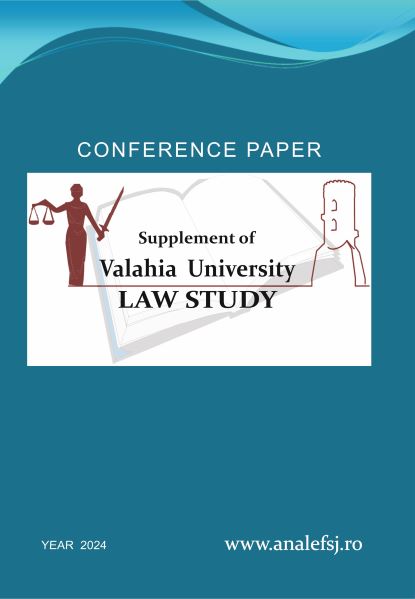THE RELATIONSHIP BETWEEN THE PRINCIPLE OF THE PRESUMPTION OF INNOCENCE AND THE PRINCIPLE OF THE SEPARATION
OF JUDICIAL FUNCTIONS
THE RELATIONSHIP BETWEEN THE PRINCIPLE OF THE PRESUMPTION OF INNOCENCE AND THE PRINCIPLE OF THE SEPARATION
OF JUDICIAL FUNCTIONS
Author(s): Alin PetreaSubject(s): Law, Constitution, Jurisprudence, Criminal Law, Human Rights and Humanitarian Law
Published by: Editura Bibliotheca
Keywords: presumption of innocence; principle of separation of judicial functions; prosecution; defense; jurisdiction;
Summary/Abstract: The principle of the presumption of innocence essentially assumes that the person accused of a criminal offense is presumed to be innocent until the moment of a final judgment against him by which he is found criminally guilty. Instead, the principle of separation of judicial functions calls for, during a criminal trial, judicial functions to be exercised by distinct procedural subjects, endowed with distinct prerogatives, corresponding to the various procedural interests in dispute. In the current Criminal Procedure Code, both principles are legally regulated, at the beginning of the referenced normative act, with the consequence that they represent the expression of some guiding rules of the criminal process. Although the legislator's perspective is salutary, the content of the regulation is partially deficient, since the principle of the separation of judicial functions is not legally outlined in relation to the principle of the presumption of innocence, which should have guaranteed its procedural effectiveness, but is developed normatively by reference to the categories of subjects present in the criminal process. Starting from the idea that the principle of the separation of judicial functions has as its existential rationale the guarantee of the right of the accused to benefit from a fair trial, in general, and his right to respect the presumption of innocence, in particular, and further deducing that judicial functions require to be configured by referring to the antagonistic interests present in the criminal process, the principle of the separation of judicial functions needs to be reconceptualized, including legally, in order to achieve the previously mentioned desires. Reconciling the two principles therefore requires rethinking the principle of the separation of judicial functions as a trichotomously structured rule, with the prosecution, the defense and the jurisdiction as components, which would allow them to be exercised distinctly, without interference, respecting the right of the accused to be presumed innocent and, implicitly, of the right to a fair trial.
Journal: Valahia University Law Study
- Issue Year: 2024
- Issue No: SI
- Page Range: 221-232
- Page Count: 12
- Language: English

